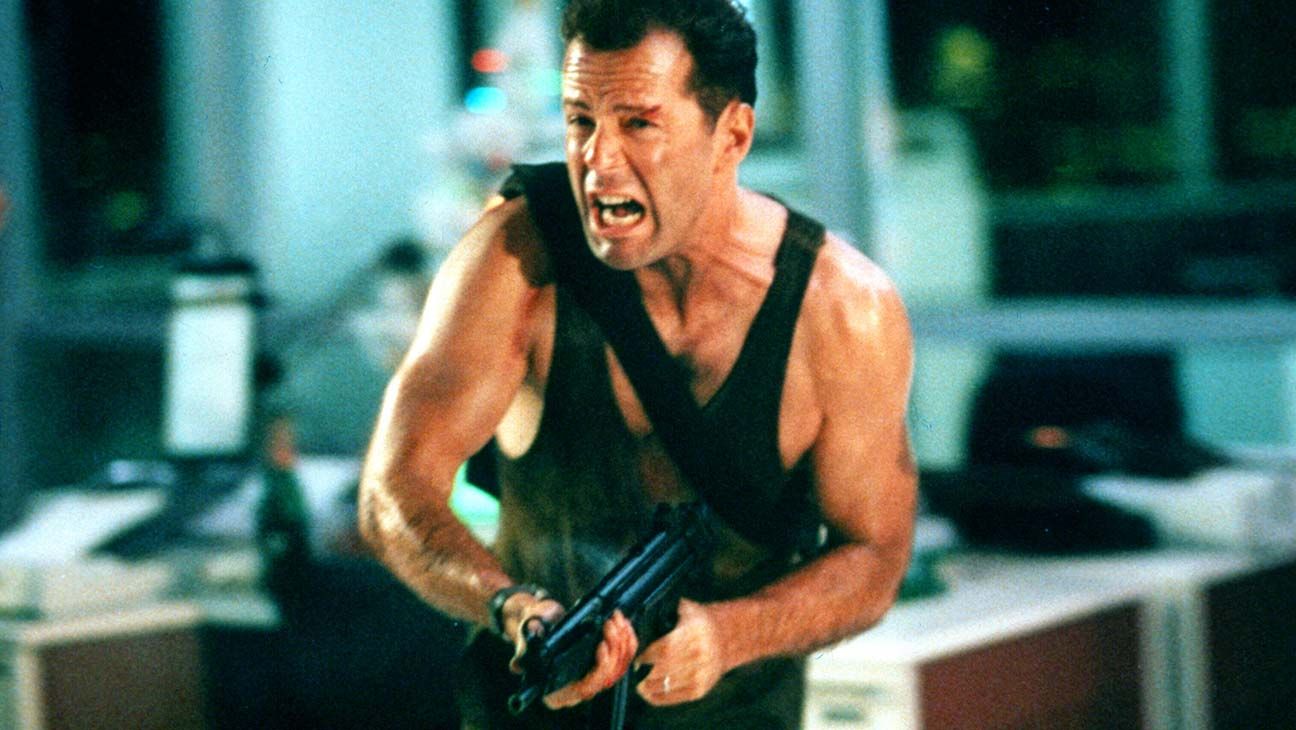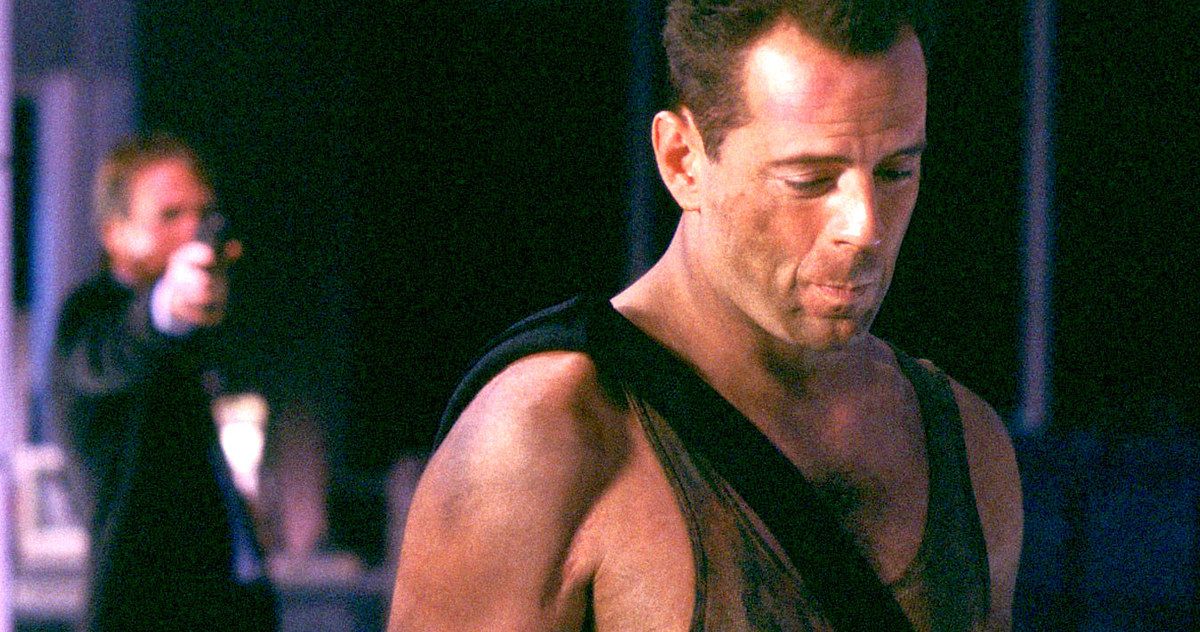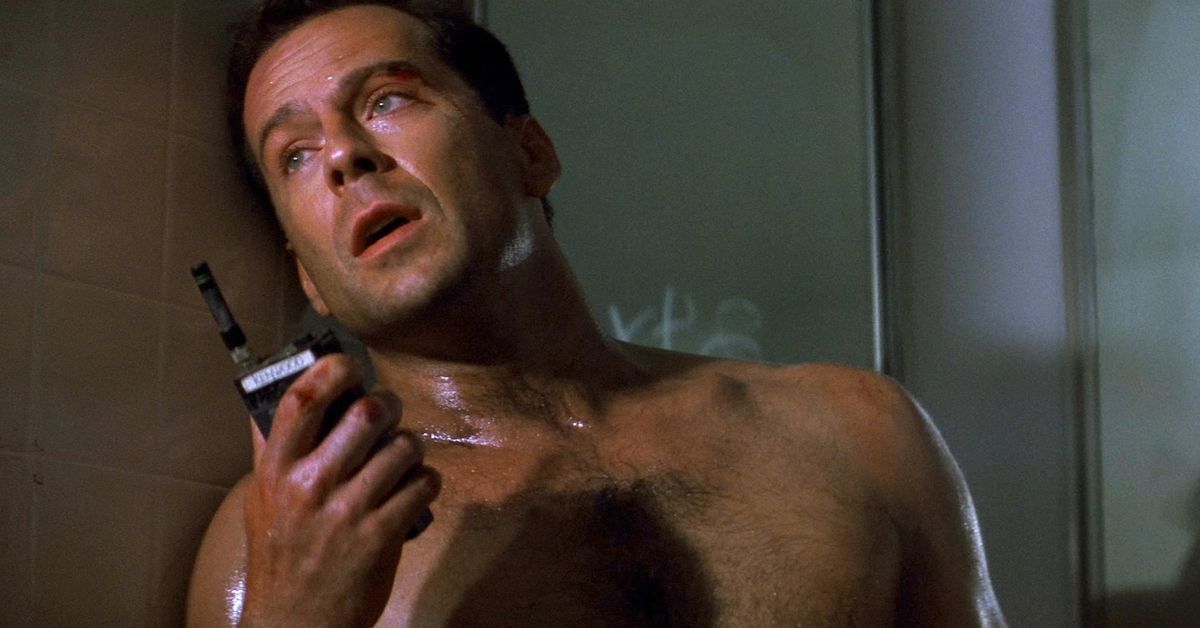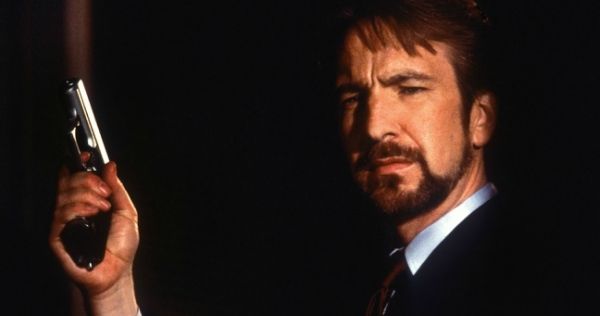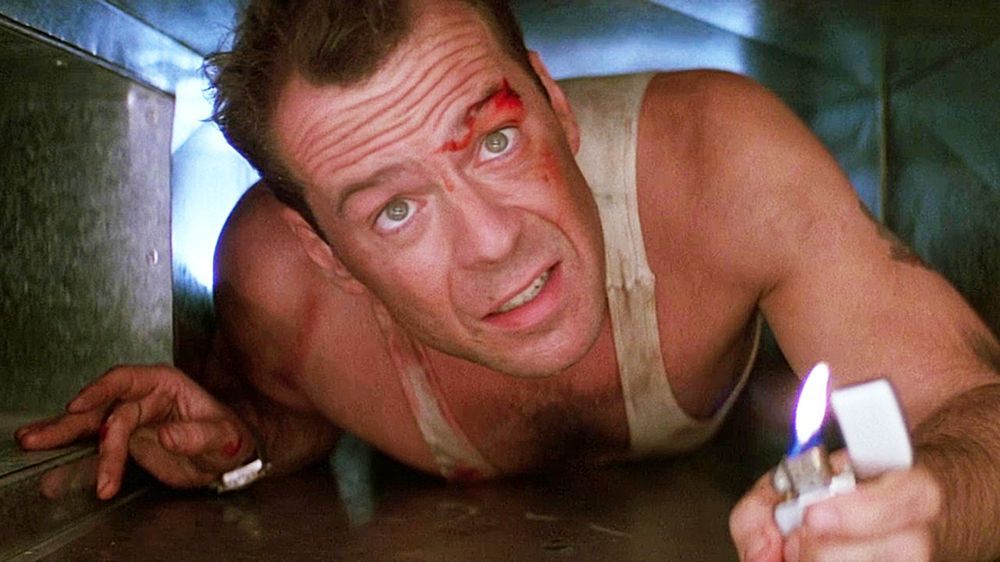The ‘80s were a decade in Hollywood that saw the emergence of the action genre and featured larger-than-life tough guys like Arnold Schwarzenegger, Sylvester Stallone, Dolph Lundgren, and Steven Seagal. With audiences flocking to see the heavy hitters in action, the era was both lucrative and ground-breaking and helped shape the hero persona. Whether they were fighting terrorists, battling aliens, or duking it out amongst their own kind, action stars and films kept moviegoers hooked and on the edge of their seats.
With such strong and muscle-bound figures headlining many action flicks, it was refreshing when Hollywood began experimenting with less conventional heroes. Arguably the biggest reluctant hero in action cinema history is none other than John McClane himself. 1988’s Die Hard took audiences by storm upon its release, revitalizing the genre by focusing on a flawed and vulnerable protagonist. The film defied odds and grossed a whopping $140 million at the box office, cementing Bruce Willis as an action heavyweight and earning four Academy Award nominations in the process.
Despite so many iconic and memorable action films being released in the ‘80s, Die Hard has a certain magic to it that is simply unmatchable. The hit movie spawned four sequels, with a combined gross profit of more than $1.4 billion.
Let’s take a closer look at why Die Hard is the best ‘80s action film of all time.
The Unconventional Hero
John McLane has an everyman persona and is a reluctant and unconventional hero. Instead of being some big, bulky muscle head, the character was portrayed by the more physically relatable Bruce Willis. McLane is just a regular guy who is thrust into a bizarre situation that forces him to step up and save the day. He is an extremely relatable protagonist that is imperfect and vulnerable; McLane is not an unstoppable force and can indeed bleed and get hurt. Unlike his fellow invincible movie counterparts, the character realizes his own morality and does everything he can to avoid imminent death.
Known for his sardonic humor and foul-mouth, McLane is amusing and extremely entertaining and viewers become invested from the jump. He is flawed and makes no effort to hide that fact, acknowledging he’s a borderline alcoholic and chain smoker. As pointed out by villain Hans Gruber, the detective is, “just another American…who thinks he’s John Wayne.” John McClane being honest and upfront about his shortcomings makes him a hero everyone wants to root for, and truly endears audiences to him.
Only Has Himself To Depend On
It is abundantly clear that John McClane doesn’t really play well with others, with a blatant disregard for authority and overall lack of interest in receiving help. He has no sidekick or right-hand man that can step in and help when things get dicey. Unlike the dynamic duo of Mel Gibson and Danny Glover in the Lethal Weapon franchise, John McClane knows that he only has himself to depend on and no one else will swoop in to help.
He also is just an average New York City detective; he’s not a buffed-up cyborg assassin like Arnold Schwarzenegger in The Terminator or a martial arts master like Jean-Claude Van Damme in Bloodsport. As pointed out in the original trailer of the film, “The last thing McClane wants is to be a hero, but he doesn’t have a choice.” Seeing Bruce Willis as the character battered and weary reminds audiences that despite being the film’s hero there is always a chance of failure.
Redefining the Action Villain
Not only did Die Hard introduce the world to a more average, regular guy hero but it also redefined what an action villain looked like. Prior to its release, many films featured antagonists that were either bland and forgettable or over-the-top eccentric. The late and great Alan Rickman’s Hans Gruber was neither of these things; instead of being cunning and strategic in every move he made. Gruber is a skilled thief and highly intellectual and is the perfect foil to John McClane.
Alan Rickman’s big-screen debut performance and role have since been heralded as one of the most iconic villains in the action genre. The dynamic between mastermind Gruber and cynical McClane really resonated with viewers and shifted the relationship between hero and villain in further action films. Rickman’s Hans Gruber was so monumental that Empire magazine called the character one of the finest villains since Darth Vader.
Altered Hollywood’s Action Formula
Everything about Die Hard is fun and entertaining, and it really helped define the summer blockbuster term. The plot itself is rather simple: it centers on a New York police detective who stumbles upon a terrorist takeover of a Los Angeles skyscraper. The premise heavily focuses on overwhelming odds in a controlled environment, a formula that was copied and imitated later in many action films and franchises. Many movies like Under Siege, Air Force One, Con Air, and Olympus Has Fallen quite clearly took the Die Hard formula and ran with it.
Die Hard also remains one of the most influential movies of the action genre, even being selected in 2017 for preservation in the National Film Registry. It was also deemed “culturally, historically, or aesthetically accurate” by the United States Library of Congress. In 2007, Bruce Willis donated the bloody, sweat-stained undershirt he wore in the film to the National Museum of American History at the Smithsonian Institution, an emblem of the antihero archetype in cinema.
With such an impressive impact in film history, it’s quite clear that Die Hard is indeed the best action movie of the ‘80s.

